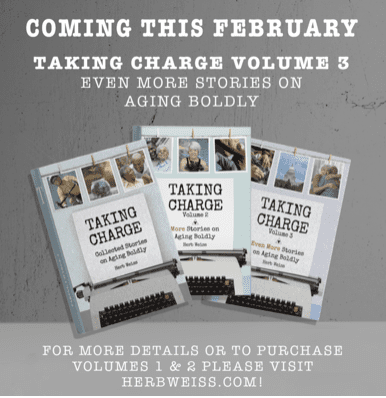Search Posts
Recent Posts
- We Cook! Mill’s Tavern’s Bison Teres Major with Truffle Moliterno, Yukon Gold Crisps, Aioli May 29, 2025
- RI Veterans: Did you know? 29.05.25 (Disability info, events, resources) – John A. Cianci May 29, 2025
- 5,000 local food benefit cards for eligible Seniors to buy fruit and veggies May 29, 2025
- Delta Dental grant brings Molar Express children’s dental care to Pawtucket and Central Falls May 29, 2025
- Rhode Island Weather for May 29, 2025 – Jack Donnelly May 29, 2025
Categories
Subscribe!
Thanks for subscribing! Please check your email for further instructions.

Preparedness: Senate Aging Committee preps for impending 2025 Hurricane season – Herb Weiss
By Herb Weiss, contributing writer on aging issues
Just days ago, forecasters at the National Oceanic and Atmospheric Administration (NOAA), part of the U.S. Department of Commerce, predicted above-normal hurricane activity in the Atlantic Basin for this year. NOAA’s outlook for the 2025 Atlantic hurricane season, which runs from June 1 to November 30, estimates a 60% chance of an above-normal season, a 30% chance of a near-normal season, and a 10% chance of a below-normal season.
“In my 30 years at the National Weather Service, we’ve never had more advanced models and warning systems in place to monitor the weather,” said Ken Graham, Director of NOAA’s National Weather Service, in a May 22 statement. He warned that above-average Atlantic Ocean temperatures are setting the stage for increased hurricane activity. “This outlook is a call to action: be prepared. Take proactive steps now to make a plan and gather supplies to ensure you’re ready before a storm threatens,” he urged.
Over a week before NOAA released its 2025 outlook, the U.S. Senate Special Committee on Aging held a full committee hearing on May 14th. Like Graham, the hearing underscored the urgent need for disaster preparedness—particularly for older Americans, who face unique challenges during emergencies. Scheduled ahead of the June 1 start of hurricane season, the hearing emphasized the importance of having a clear, actionable emergency plan in place before disaster strikes.
No alternative to being prepared for disasters
Expert witnesses, at the one hour and 31 minute hearing, shared firsthand insights and best practices for protecting older adults and people with disabilities during emergencies, aiming to raise awareness and inspire action among seniors, caregivers, and policymakers nationwide.
“I’m no stranger to disasters,” admitted Sen. Rick Scott, Chairman of the Senate Special Committee on Aging, in his opening statement. During his eight years as Florida’s governor and six years as a U.S. Senator, he has personally witnessed the devastation hurricanes can cause. “If there’s one lesson I’ve learned, it’s that preparedness saves lives. There is no alternative to getting prepared and having a disaster plan,” he said, stressing that possessions can be replaced — but lives cannot.
“We know the risks and we know the statistics, and it’s our responsibility to plan accordingly,” urged Sen. Kirsten Gillibrand, Ranking Member of the Senate Special Committee on Aging, in her opening statement. While natural disasters are dangerous for everyone, they pose even greater risks to older adults and people with disabilities, noted the New York Senator.
According to Sen. Gillibrand, research shows that people with disabilities are up to four times more likely to die in a disaster than the general population, and older adults are more likely to die in a disaster than any other demographic group.
She called for the development of accessible shelters and transportation, alerts in multiple languages, and the requirement that long-term care facilities have disaster plans in place before—not after—a crisis occurs. Gillibrand also announced her intention to reintroduce legislation that would establish a nationwide grant program under the Older Americans Act. This program would incentivize and support states in creating strategic plans for aging populations, with disaster preparedness included as a core component.
“In addition to planning, we must also ensure that state and local governments are properly resourced to build accessibility into their disaster and recovery responses,” she said. Gillibrand also emphasized the need to safeguard federal resources provided through agencies like the Federal Emergency Management Agency (FEMA) and the U.S. Administration for Community Living (ACL).
Sheriff Chris Nocco of Pasco County, Florida—a county with 24 miles of coastline, located just north of Tampa Bay and home to roughly 750,000 residents, 22% of whom are age 65 and over—shared his insights and expertise on preparing for and recovering from natural disasters. He noted that federal and state partnerships, such as the National Guard and Coast Guard, are invaluable during rescue operations. He also urged law enforcement agencies to utilize evolving technologies such as drones for disaster preparedness and recovery.
“I witnessed individuals who had climbed onto roofs to avoid the rapidly rising storm surge. In one instance, a woman, her small child, and elderly relatives had climbed to the roof of their three-story multifamily housing unit and were awaiting rescue,” said Nocco. He stressed that this highlights the critical importance of following emergency management directives—especially evacuation orders—particularly for the most vulnerable in our communities.
With several days’ notice of an impending disaster, Nocco recommends that older adults request extra prescription medications from their pharmacies and remember to bring phone chargers, emergency contacts, credit cards or cash, and extra clothing when evacuating.
“When people are told to evacuate, they trust law enforcement and fire rescue personnel,” said Nocco. “But they also trust their churches to say, ‘Shelter here.” He suggested that churches can serve as effective emergency shelters and proposed that federal resources be used to equip them with generators and hurricane-resistant windows.
Costly disasters becoming “New Normal”
“Nearly 20 percent of Americans are in the 65-and-older age group, and the current growth of this population is unprecedented in U.S. history,” said Jennifer Pipa, Vice President of Disaster Programs for the American Red Cross, noting that this demographic shift comes at a time when more frequent and costly disasters are becoming the “new normal.” Her Red Cross career began in 2004 when she joined the Disaster Action team in Raleigh, North Carolina as a volunteer
According to Pipa, The New York Times reported that following Hurricane Sandy in 2012, nearly half of those who died were age 65 or older. “Sadly, many drowned at home or died from storm-related injuries,” she said.
Pipa also cited other disasters that claimed the lives of older adults. “The 2018 Camp Fire, which burned for 18 days in Paradise, California, resulted in 85 deaths. Many victims were elderly or had disabilities—the average age was 72. In 2023, more than two-thirds of the 102 confirmed victims of the Maui fires were over the age of 60. And last year, Hurricane Helene caused at least 250 deaths in the United States, with many victims being elderly. In North Carolina alone, two out of every three deaths from Hurricane Helene were among adults aged 60 or older,” she added.
“The intersection of these trends—an aging population and significantly more disasters—should concern all of us,” Pipa told the Senators.
She emphasized that the impact of disasters on older Americans doesn’t end when the storm passes. “People over 65 make up nearly 10 percent of American Red Cross emergency shelter populations after evacuations are lifted,” she said.
“Our responders often encounter elderly disaster survivors living in severely damaged homes or in dwellings without power or water. These individuals frequently express fear of losing their homes and property if they leave. In some cases, we meet older adults who are physically or emotionally unable to get to a shelter or find safer housing,” Pipa added.
She highlighted several Red Cross programs tailored to help communities prepare for disasters:
· Be Red Cross Ready: A free national preparedness education program for adults, taught by certified instructors.
· Home Fire Campaign – Home Visits: Fire safety guidance tailored for older adults—such as keeping mobility aids, hearing devices, and medications near the bed, or relocating bedrooms to the ground floor. Includes installation of accessible smoke alarms.
· Caregivers Preparedness Checklist: Developed with AARP to help caregivers ensure both they and their loved ones are prepared.
· Building Your Support Network: Encourages older adults to develop a network of trusted individuals who can assist during emergencies.
· Emergency App: Offers customized preparedness tips, particularly for households with older adults, focusing on hurricane and wildfire planning.
Disaster planning with the community
Finally, Luis Vance Taylor, Chief of the Office of Access and Functional Needs at the California Governor’s Office of Emergency Services—who is disabled and uses a wheelchair—stressed the importance of inclusive emergency planning to the committee. “Forward-leaning emergency management agencies are ending the practice of planning for the community and are choosing to plan with the community,” he said. Taylor advocated for the creation of Access and Functional Needs (AFN) Advisory Committees at the state and local levels to ensure better outcomes.
“Inclusive planning leads to press conferences with American Sign Language interpreters, critical updates posted in accessible formats, and evacuation resources and shelters that are both physically and programmatically accessible,” he explained.
Taylor also warned that cutting or eliminating agencies like FEMA, ACL, or the Administration for Strategic Preparedness and Response would have devastating consequences—especially for older adults and people with disabilities. “These agencies need adequate funding to deliver the full range of federal resources required to respond to and recover from large-scale disasters that overwhelm local communities,” he said.
Training programs before disasters occur and crucial when there is no time to think of everything to take with you. “People forget their chargers. You know what charger? They forget their wheelchair charger,” notes Taylor. “So we have to engage them beforehand. And that comes through training,” he says.
To watch Senate Aging Committee Disaster Preparedness hearing, go to https://www.aging.senate.gov/hearings/preparing-for-disasters-unique-challenges-facing-older-americans.
Editor’s Note: The Rhode Island Emergency Management Association (RIEMA) has a wealth of information designed for Rhode Islanders, specifically. From local flood information, to preparing for a weather emergency, and even a local registration for people in a home who may be disabled, including special needs children, and need extra help to evacuate. Why not look at this local resource now so you can be prepared – to get prepared?
___
To read more articles by Herb Weiss, go to: https://rinewstoday.com/herb-weiss/

Herb Weiss, LRI ‘12, is a Pawtucket-based writer who has covered aging, healthcare, and medical issues for over 45 years. To purchase his books, Taking Charge: Collected Stories on Aging Boldly and its two sequels, visit herbweiss.com.
To purchase his books, Taking Charge: Collected Stories on Aging Boldly and two sequels, compiling weekly published articles, go to herbweiss.com – or purchase from Amazon.

